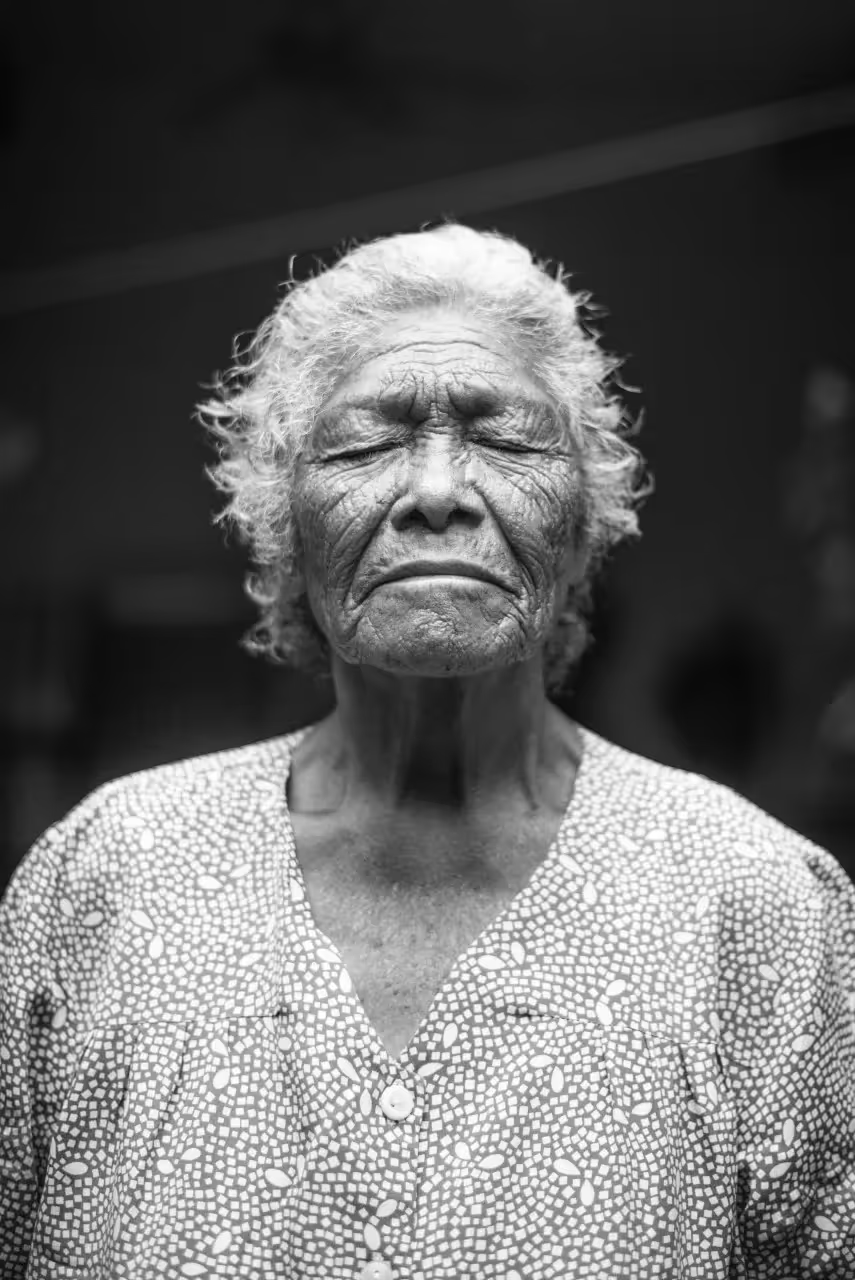Even while it's painful for anybody to lose a loved one, the elderly are more vulnerable to the negative effects of bereavement.Navigating the path of...

Even while it's painful for anybody to lose a loved one, the elderly are more vulnerable to the negative effects of bereavement.
Navigating the path of sorrow may be substantially more complicated for grandparents grieving the death of a spouse.
This is because when it comes to support for grief, grandparents are often too preoccupied with "keeping strong" for their loved ones to process their own emotions.
Even if they may like to think of others before themselves, there are ways you can support your grieving grandparent.
By listening attentively to them, for example, you are giving them an outlet to share memories they cherish of their lost loved one.
Some people learn how to cope better from talking about the person they have lost.
If this is their coping mechanism, encourage them to do more talking while you do more listening.
They might be a grandparent, but they are human too.
Be compassionate and encourage them to express themselves how they see fit.
It will aid their recovery process.
Below are more details on how to support your grieving grandparent.
Grant the grieving grandparent the freedom to share their thoughts and emotions without worrying about being judged.
Don't worry about what they say or how loud they cry.
Don't tell them what to do or how they should feel; everyone deals with loss differently, and it's important to respect that.
Remember that your responsibility is to help the mourning grandparent in their journey through grief, not try to try to fix their problem or take away their pain.
Guilt, rage, hopelessness, and dread are all prevalent emotions.
If your loved one is feeling this way, they need to know it's okay.
In the face of such loss, it is only normal and okay to shed tears.
Bottled-up emotions will eventually become too much for them.
You may be feeling inadequate when you can make them feel better, don't feel this way.
You can't make things better for other people by making their problems go away, but you can be there for them when things become tough.
Sending a sympathy card is a kind gesture of support, but there's nothing like handwritten words.
Envision the smile or warmth you can bring to their face by sharing a touching story about your fondest time spent with your deceased grandparent.
Describe the unique features that made this person stand out to you.
Through this, you are appreciating a d celebrating the life of the deceased parent.
These words are a token of your love for your grandparent and will be treasured forever.
If you want to send a personal letter or have a conversation with a grandparent, use the grandparent's name.
It's nice to know that you haven't forgotten about the grandparent's beloved and sadly missed spouse, and hearing their name may be reassuring in times of grief.
Helping begins with just listening.
Having you there in person and wanting to listen without passing judgment is a way to support your grieving grandparent.
Worrying too much about what you'll say is unnecessary.
There may be instances when you feel absolutely helpless since you will not be able to provide assistance.
Listen carefully to the information being communicated by them.
Grandparents who have lost a loved one may often feel compelled to repeat the same tale about the deceased.
Each time you both have these conversations, they realize that it's as though death becomes a little less dreadful.
Be mindful that this reiteration serves a necessary function in the grandparent's recuperative process.
Just listen and try to understand their healing process.
They may be open to communication sometimes, and at other times they may not.
To that end, it's recommended that you embrace 'uncomfortable' silence if that is what they need at that moment.
Being there for them shows how much you care just by being there.
Simply spending time with them demonstrates your love and concern.

Elderly people may need company too.
They may not ask you to show up, but they will be grateful you did.
Keeping them company is another way to support your grieving grandparent.
However, don't make assumptions about them wanting or not wanting company; always ask first.
While keeping them company, consider offering them help with chores around the house.
Such as preparing food, grocery shopping, laundry, and cleaning the house are just some ways of showing you care.
These tasks may be done every other week, once a month, or however convenient for you, depending on your availability and the nature of the work.
Just as with your presence, be ready to support them for as long as they need you.
They may find it more challenging to cope with their spouse's absence on holidays and other major days like their birthday and the anniversary of their death.
The spouse's absence is emphasized by these occurrences.
Moments like this are when they need their loved ones the most because no one would want to be alone on such significant days.
Ensure you recognize and honor their suffering as a normal part of the grieving process.
It's nice to pay a visit, send a message, or even just offer a brief phone call to the grandparents during these times.
Having your continued support is both needed and therapeutic.
Grief is a difficult experience that calls for a lot of strength and determination to keep going.
This may be taxing for grieving grandparents, who may be emotionally and physically drained from coming to terms with the full scope of their loss.
At this point, they would need all the support for the grief they can get.
You can support your grieving grandparent by letting them share their feelings, writing them a note, listening to them, keeping them company, and remembering the holidays and important anniversaries.
https://time.com/5118994/advice-for-helping-grieving-friend/
https://www.hrrv.org/blog/7-ways-to-help-a-parent-who-has-lost-a-spouse/
https://www.weatherlyfuneralhome.com/griefarticle/article/helping16
https://www.bustle.com/articles/96282-10-ways-to-help-your-partner-cope-with-loss
https://www.thezoereport.com/wellness/how-to-support-grieving-partner
It's important to remember that you are allowed to grieve however you need to, and that doesn't mean you have to ruin the holidays for everyone else. If you need to take a break from holiday festivities, do so. Go for a walk, take a nap, watch a movie—whatever you need to do to take care of yourself. You can also try talking to your family about your grief ahead of time and asking for their understanding and support.
Dealing with someone who is addicted to drugs or alcohol can be difficult. It is important to remember that addiction is a disease, and the addict is not responsible for their behavior. You can offer support and understanding, but it is important to set boundaries. You can also get help for yourself through therapy or counseling.
Addressing grief is crucial because unresolved grief can significantly impact your quality of life, overall well-being, and ability to function in daily activities. Left unaddressed, grief can lead to more severe mental health issues, such as depression, anxiety, and complicated grief.
The stages of grief, according to the Kübler-Ross model, include denial, anger, bargaining, depression, and acceptance. However, it's important to note that not everyone will experience all these stages, or in this order. Grief is a highly individual process.
There is no set timeline for overcoming a breakup. Everyone deals with grief in their own way and on their own time. While some may be able to move forward quickly, others may take longer. Remember that it's normal to experience a range of emotions as you heal and don't rush the process.
Grief may feel worse at night because sleep disturbances are common during the grieving process. As nighttime falls, distractions diminish and we're left alone with our thoughts, which can make the loss feel overwhelming.